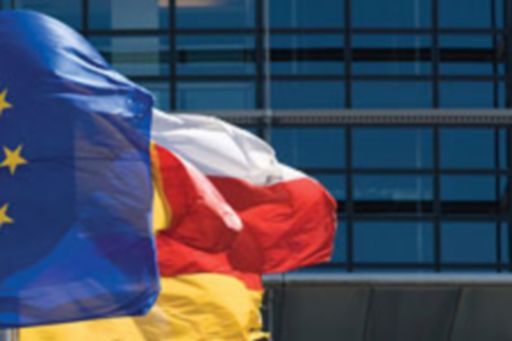Euro Tax Flash from KPMG's EU Tax Centre
Euro Tax Flash from KPMG's EU Tax Centre
On December 8, 2015 the Council of the EU (ECOFIN) discussed the current state of play with regard to the proposal of a number of EU Member States to introduce a financial transaction tax (FTT)

10 EU Member States Agree on Some Principles for a Financial Transaction Tax; Others still under Discussion
ECOFIN – FTT – Enhanced Cooperation
On December 8, 2015 the Council of the EU (ECOFIN) discussed the current state of play with regard to the proposal of a number of EU Member States to introduce a financial transaction tax (FTT). In the context of this discussion, 10 of the original 11 Member States issued a statement setting out areas where agreement had been reached as well as areas that were still open. Estonia has indicated that it no longer supports the proposal. The statement indicates that a decision on the open issues should be made by end of June 2016.
Statement by 10 Member States on agreed FTT features
The statement issued by the 10 remaining Member States supporting the FTT (Austria, Belgium, France, Germany, Greece, Italy, Portugal, Slovakia, Slovenia, Spain) (FTT10) sets out details of the features the tax should have.
The first part deals with shares and the second deals with derivatives, so it appears that there is agreement as to these being in scope. However, there is no mention of other financial instruments such as bonds. Consideration is being given to possibly initially limiting the scope of the tax to shares issued in the FTT10 Member States. It seems to be agreed that share transactions would be taxed on a gross basis rather than after netting and settlement.
Regarding the controversial issue of jurisdictional scope the statement indicates that the FTT10 have agreed that this will be on the same basis as proposed by the Commission in 2013 (see ETF 211) (PDF 55 KB), i.e. a combination of the residence and issuance principles. This aspect of the earlier proposal has attracted much criticism from non-participating Member States by reason of its ‘extra-territorial’ effect. However, as the statement points out this aspect is important to the FTT10 in view of the potential relocation risks and administrative costs involved.
The statement addresses a number of possible exemptions from the scope of the tax. Of these, it appears to be agreed that clearing members when acting as facilitators would be exempt. Consideration is also being given to a limited exemption for equity market makers, but no exemption will be given for market making activities in derivatives. No agreement appears to have been reached on exemptions for pension schemes or ‘real economy’ transactions (such as commercial hedging), but discussion is continuing. Although no explicit exemption is mentioned for derivatives relating to sovereign debt, the statement indicates that the tax should not impact on the cost of sovereign borrowing.
Limited agreement seems to have been reached regarding the tax base for derivatives, such as options being taxed by reference to the premium. Discussion is continuing on alternatives for other types of derivative.
The statement indicates that further work will take place regarding the applicable tax rates. This suggests that changes may be made to the rates in the 2013 proposal of 0.01% for derivatives and 0.1% for other financial instruments. In this regard it should be noted that the statement indicates that the taxation of derivatives should be on the widest possible base and at low rates.
Finally, the FTT10 indicate that a decision on the open issues should be made by the end of June 2016.
EU Tax Centre Comment
It remains to be seen how this initiative progresses during 2016. Previously self-imposed deadlines in this regard have not been met so there is nothing to say that the June 2016 deadline will also be met. It is also noteworthy that the statement indicates that the financial viability of the tax for each country is required. This may, for example, refer to the question whether or not the costs of implementing the tax are adequately covered by its revenue. The latter is understood to be possibly one of the reasons for Estonia having withdrawn from the initiative.
Should you require further assistance in this matter, please contact the EU Tax Centre or, as appropriate, your local KPMG tax advisor.
Chairman, KPMG’s EU Tax Centre and Partner, Meijburg & Co
vanderjagt.robert@kpmg.com
Director EU Tax Services, KPMG’s EU Tax Centre
Director, Meijburg & Co
larking.barry@kpmg.com
